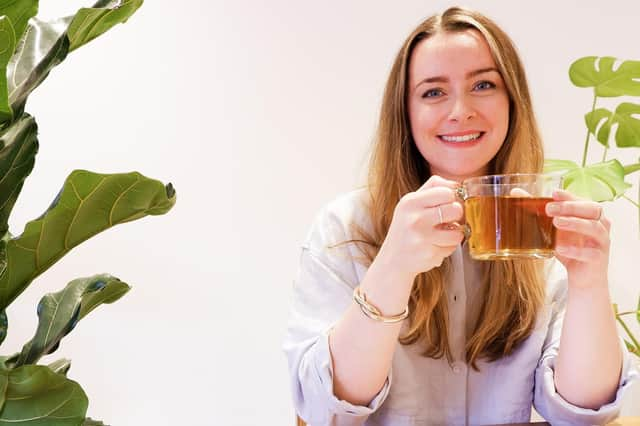Column: Kenilworth nutritionist’s advice on supporting yourself naturally through the menopause


Going through the menopause might be up there as being one of the biggest challenges you face. I regularly work with menopausal women and know how much misinformation there is, particularly when it comes to the diet. It’s confusing, and when you’re already feeling exhausted and like you can’t string a sentence together, trying to figure out how to best support yourself can be frankly, overwhelming.
Introducing a natural approach through dietary and lifestyle interventions either alone, or alongside traditional medicine, can have huge advantages in helping you transition through this life stage. Following a healthy lifestyle will also help to support you post-menopause, protecting your bone, cardiovascular and cognitive health.Four dietary changes to try:
Advertisement
Hide AdAdvertisement
Hide Ad1. Include a source of protein with every mealProtein is absolutely essential for your mind and body to work properly. The amino acids found in protein form your hormones, neurotransmitters, help your liver to work and your gut to function. Protein is also super important in building muscle, which is more significant as we age and it helps to stabilise blood sugar levels as it is a slow release form of energy and keeps us feeling fuller for longer. Foods include lean meat, fish, dairy, beans, chickpeas, lentils and peas, nuts and seeds.2. Include Omega-3 fats in your dietFats have sadly been demonised but getting the good, healthy kinds (omega-3s) is crucial for your health. Not only do these help form hormones, they are essential for brain and cardiovascular function. They are also anti-inflammatory meaning they are great for inhibiting inflammation that drives brain fog and aching joints. Food sources include oily fish (salmon, mackerel, sardines – aim for 2-3 portions per week), chia seeds, flaxseed, walnuts, extra virgin olive oil, avocados.3. Introduce phytoestrogensPhytoestrogens are types of oestrogens that are naturally found in foods. Eating these on a regular basis can be extremely beneficial during the menopause, as you are helping to support your naturally declining oestrogen levels. This drop in levelscauses many uncomfortable symptoms like hot flushes, night sweats and anxiety. Foods include soya, tofu, edamame, cruciferous vegetables (broccoli, cauliflower, kale), ground flaxseed, sesame seeds and chickpeas.4. Look after your gutSupporting gut health is extremely important, even more so through the menopause as the gut plays a role in the modulation of circulating levels of oestrogen in the body. You may notice an increase in IBS symptoms including bloating, wind and constipation, as well as indigestion and reflux. The gut microbiome (the collection of bacteria housed in your gut) also influences the oral and vaginal microbiome, so changes at the menopause can drive recurrent thrush. To support your gut, aim to consume 30g of fibre per day (fruit, vegetables, wholegrains, lentils, pulses, beans, nuts and seeds) and introduce fermented foods including kefir, kimchi, sauerkraut and miso.To learn more, join Hannah at her upcoming talk: ‘An Introduction to Nutrition for Menopause’ on Sunday September 25 from 7-8pm at The Basement Snug in Kenilworth.Tickets: www.nutritionbyhannah.co.uk/eventsLink to event page: https://www.eventbrite.co.uk/e/an-introduction-to-nutrition-for-menopause-tickets-403871258807